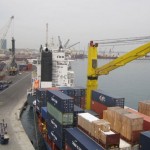South Africa and Botswana have signed a memorandum of understanding to promote trade and investment between the two countries and create opportunities for industrialisation and the manufacturing sectors.
The signing follows a two-day state visit by President Jacob Zuma to Gaborone with the purpose to strengthen political and economic relations with the neighbouring country.
His visit was a follow-up to the October 2010 one by President Ian Khama to Pretoria, during which the two countries reviewed progress in various areas of bilateral cooperation.
The MOU was signed by the Botswana Investment and Trade Centre andTrade and Investment South Africa, a unit of the Department of Trade and Industry (DTI), at the South Africa-Botswana Business Forum.
A high level ministerial delegation from South Africa that included DTI Minister Rob Davies, and his Botswana counterpart, Dorcas Makgato-Malesu, also participated in the proceedings. Also at the forum were also prominent business leaders from various sectors.
Strengthening economies
The signing also marks a significant move to strengthen existing economic ties between the two countries.
“We are looking to promote deeper mutually beneficial economic relations between the two countries,” said Davies.
South Africa and Botswana are already trading partners, with local companies having a major presence in various sectors of Botswana’s economy such as mining, housing, food and beverages, construction, retail, hotels and leisure, banking and medical services.
Zuma’s spokeperson Mac Maharaj said in a statement investment in infrastructure was an important focus of the visit. This was especially the case if the two countries are to work together on large scale projects such as cross-border infrastructure as well as industrial and energy developments.
According to Davies, the continent is the new growth frontier.
“It is a place that investors can no longer ignore,” he said, adding that there is a need for the continent to move into more value added and economically diversified activities.
“We need to industrialise the continent and re-industrialise South Africa’s economy because this sector has taken a lot of strain,” he added. “We have to create business opportunities for industrial development.”
This was reiterated by Pumla Ncapayi, the DTI’s deputy director general, who said there is a need to move away from mineral-based economies only, towards manufacturing-driven sectors.
Speaking on behalf of the Black Business Council, spokesperson Sandile Zungu said the two countries are in a good position to work together as they share common challenges.
“We need to beneficiate, increase manufacturing capacity and forge better collaboration as regional economies,” he said.
Makgato-Malesu took the opportunity to speak on Botswana’s status as a rising investment hub.
“We are looking for the type of investment that will help us accelerate industrialisation and result in economic diversification of the economy of Botswana,” she said.
Building on existing relationships
In his address, Zuma referred to the strong historical, economic, social, political and neighbourly relations that the two countries share, saying these were strengthened during South Africa’s liberation struggle.
“Enhancing close economic cooperation between Botswana and South Africa is a priority,” he said. “We believe that the time for Africa has come to utilise its resources for the benefit of itself.”
Following on Zuma’s encouraging message to the business communities of the two countries to take advantage of new opportunities, Zungu said:“The argument for cooperation between the two countries is sound, and together the two can achieve so much more.”
He added that the role of business on the continent can extend beyond financial investment only.
“The business approach of only being profit driven is a bygone era,” he said.
“Business people must take cognisance of the fact that there is high unemployment in the region and they must think how their businesses can meet this need, but at the same time achieve accelerated growth.”













Speak Your Mind